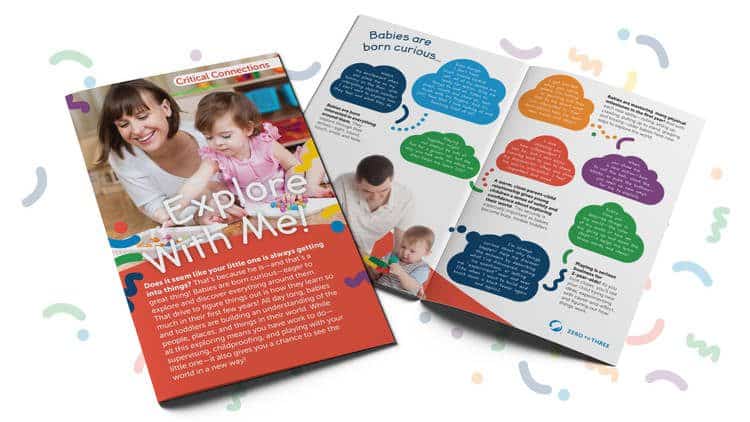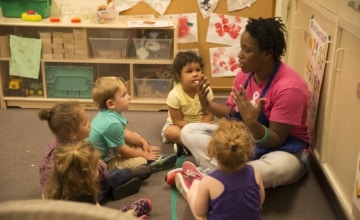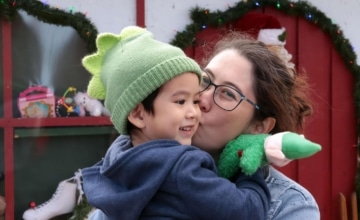Here are five important facts about how your baby’s brain is working and five ways to make the most of this time of rapid brain growth.
There’s a lot going on in babies’ minds in the first year of life, and their early experiences in the world affect how their brains grow in ways that can last a lifetime. Many parents underestimate just how deeply children are affected by early experiences and how soon in life babies can feel a range of emotions.
Understanding what children are taking in and learning during daily interactions with the important people in their lives helps you nurture your child’s healthy development—including his or her language, thinking and social-emotional skills.
Here are five important facts about how your baby’s brain is working and five ways to make the most of this time of rapid brain growth:
1. Babies are determined detectives. Your baby can tell how you feel and will respond accordingly.
As early as 4 to 6 months, babies already notice differences in your facial expressions and tone of voice. They pick up on and react to how you are feeling, such as—sad, angry or happy. When you smile, your baby will mirror your emotion, perhaps by smiling or kicking with joy. When you look and sound angry, your baby may freeze up and lose interest in playing. This doesn’t mean you always have to be happy and cheerful. What it does mean is that it’s really important to be mindful of your own emotional state to have healthy ways to manage stress and the difficult feelings that naturally arise in parenting and life so that they don’t interfere with positive interactions with your baby.
2. Very young babies already have very big feelings.
Way before they can say their first words, as early as 3 to 5 months of age, babies experience a whole range of feelings like joy, sadness, anger, interest and excitement. Tune in to your baby’s facial expressions, sounds and gestures, and to patterns in their reactions to different experiences. This will provide helpful clues about how your baby is feeling. When you respond in ways that are sensitive to what your baby is telling you, she learns that her feelings matter, which builds her trust in you. This might mean giving her time to warm up to new people or places if her actions show you that she needs time and support to feel comfortable in unfamiliar situations.
3. Your baby knows when you’re sharing important information.
Even young babies know when you are showing or telling them something you want them to focus on. They pay special attention when you make eye contact, call their name, and use that higherpitched, sing-song voice that babies love. When you engage with your baby in this way, it helps him learn. And when you respond to what your baby is telling you with his actions, like moving a toy closer when you see him trying to roll his body toward it, you nurture his curiosity which enhances his desire to keep on learning.
4. Babies figure out what’s going on in the world by watching for your reaction.
They read your facial expressions and actions to see whether a new person or situation is safe. If you smile at a new child care provider and tell your little one what a good time he is going to have with her, your child will feel good about this new place and safe in that environment. If you show worry in your tone of voice and facial expressions and keep coming back to check on him, he may “catch” your anxiety and worry that this new place is not safe, making this transition more challenging. Think about how you want your child to feel about new experiences and then act in ways that will help your baby cope.
5. Your baby can detect danger and needs you to make her feel safe.
During his first months in the outside world, your baby’s brain is processing one of its most important questions: Is this world safe or dangerous? Danger can come in many forms for young children, from angry faces and reactions, rough handling, big changes in their daily routine or being overloaded by too much stimulation. Research has even shown that sleeping babies’ stress levels go up when there is shouting in the home. While disagreements are an inevitable part of co-parenting, keep in mind that living with ongoing stress and fear can negatively affect children’s development—specifically language development, memory and self-regulation. Surrounding your baby with healthy relationships, and offering nurturing experiences in a safe environment sets the foundation for healthy development both now and in the future.




